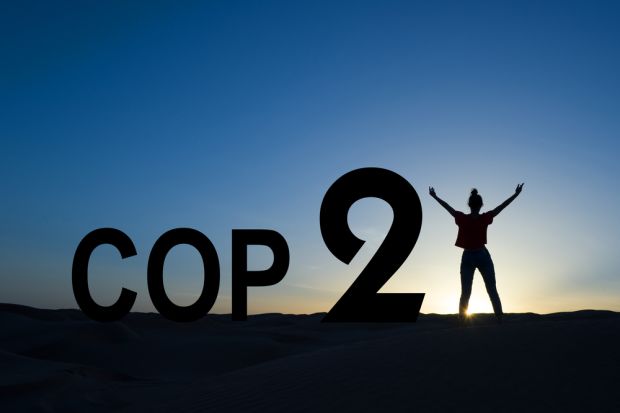
Students are getting serious about climate change issues and have added their voices to an open letter delivered last night to a French diplomat ahead of the United Nations climate change conference.
The letter, signed by major higher education and student networks, urges ministers, negotiators and governments to support research and education that will play a role in finding climate change solutions.
It was handed to Pierre-Henri Guignard – the general secretary for the UN’s COP21 conference, which will take place in Paris in December.
Ultimately, students hope that sustainability will become embedded in curricula across all stages of education.
But in the short term, the aim is for global youth and student movements to unite after COP21 to put pressure on governments and “become a force too powerful to ignore”, according to Piers Telemacque, the vice-president for society and citizenship in the UK’s National Union of Students.
He said: “Eighty per cent of students want their institutions to do more on sustainability, and 60 per cent want to do more about it. It’s a hugely important issue to students.
“They recognise that sustainability has to be an integral part of their education, and that’s why we want to see strong governmental leadership on this.
“We need to make sure that people going to university and college are prepared to meet the challenges of the decades ahead, not repeat the mistakes of the decades behind us.
“We’ve been behind on this agenda for too long. It’s time to get serious.”
More than 6,000 universities from all over the world have banded together as a “global alliance” to demand that delegates at COP21 recognise the power of education in the ongoing project to mitigate climate change.
Iain Patton, chief executive of the UK-based Environmental Association for Universities and Colleges, said: “Never before have students, colleges and universities across every continent spoken with one powerful voice to urge national and international governments to take action.”
The letter requests more transdisciplinary learning and teaching on sustainability issues, support and funding for climate change research, respect for academic freedom, policy changes, and more use of energy-efficient resources by universities, as a starting point for entire countries to make the transition.
Mr Telemacque believes that initiatives at universities will eventually influence national and international leadership, as graduates go on to apply the skills and experiences gained at university in decision-making roles later in their careers.
The current leadership, he feels, is failing the younger generations, who will inherit the worst effects of climate change.
He said: “The anti-renewables and anti-sustainability rhetoric from today’s government isn’t just another attack on the climate – it’s an attack on the young.
“Our government isn’t leading. We need to lead instead.”
























Have your say